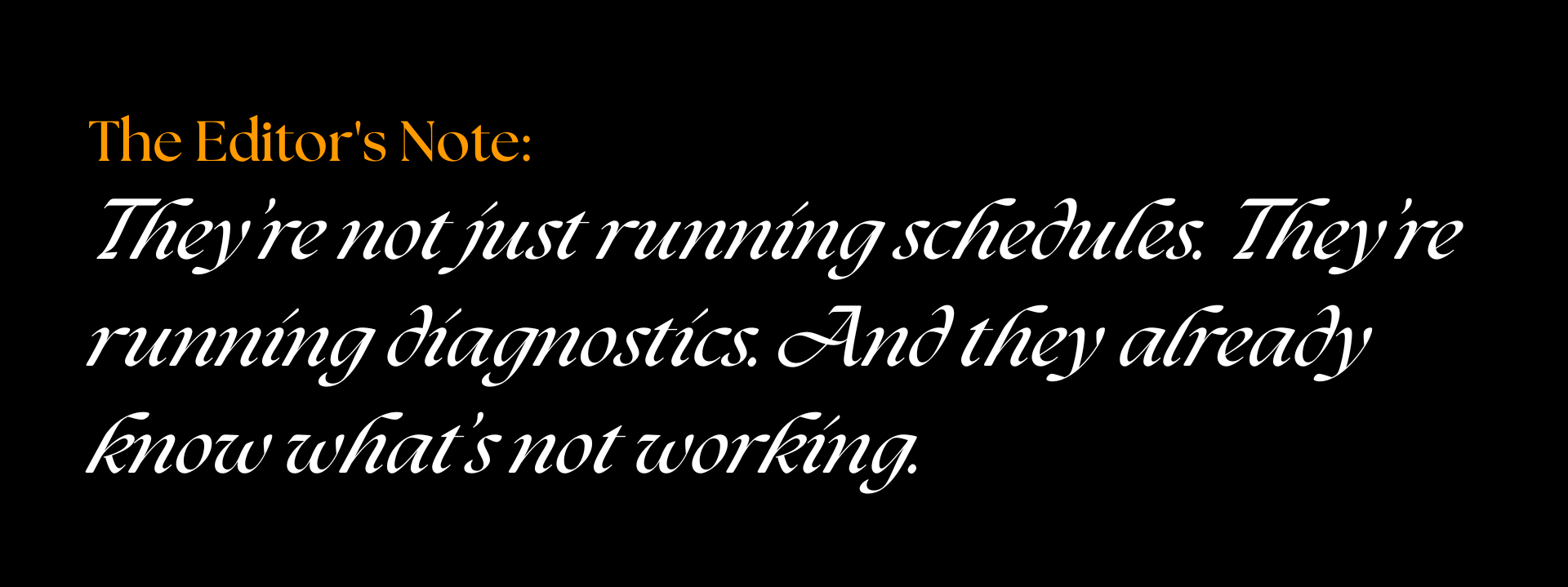What Assistant Directors Know Before You Do

You may outrank them. But they know exactly when you lost the room.
They see it all.
The camera block that doesn’t track. The actor clearly faking belief in a scene. The DOP adjusting silently because the director’s shot list hasn’t changed in four days. The line producer is already planning the exit budget.
And they talk.
Assistant Directors are the set’s unofficial diagnostic system. Between setups. Over the walkie. Inside that 5-minute reset, where everyone pretends they’re on schedule. They whisper what the actors won’t say and the producers won’t hear.
You don’t have to like what they’re saying. But if you’re smart, you’ll stop ignoring them.
Who’s Whispering, and Why It Matters
ADs don’t run the set. They run the truth of the set.
They sense the cracks before the breakdown. They spot the rewrite that killed the pace. They know when the energy’s gone and the camera’s just pretending to care.
They’re not assistants. They’re the first responders.
A second AD on a major OTT thriller was the first to whisper what nobody else dared say: “We’re reshooting Episode 3 in five weeks. This scene doesn’t fit the new tone.” Nobody listened. Five weeks later, that exact sequence was pulled, rewritten, and reshot. ₹27 lakh burned. One whisper, ignored.
What They’re Saying (But Won’t Say to Your Face)
- “She doesn’t know what shot she wants.”
Translation: the crew is dying in real time. The DOP is taking over. The film is slipping.
- “He’s just copying reels.”
Translation: style without point. The scene doesn’t land—it just looks busy.
- “The actors are covering for bad direction.”
Translation: no emotional anchoring. The scene reads flat. No one will say it.
- “They don’t trust the team.”
Translation: leadership through micromanagement. Everyone’s waiting to be blamed.
- “We’re shooting for survival, not story.”
Translation: the film has entered autopilot. That’s how mid-budget films die quietly.

Why It Matters for Filmmakers
Because ADs speak to editors.
Because they speak to the crew.
Because they shape the kind of backstage reputation that doesn’t show up on paper, but will eventually feel.
They know if your script isn’t solid.
They know if your emotional arc got lost in the lighting brief.
They know when you’re hiding behind retakes because you don’t believe in your own material.
The Industry’s Silent Contradiction
The people with the clearest view of a film in motion are often the most culturally silenced.
ADs are expected to be invisible. Efficient? Yes. But, tired and apolitical.
But here’s the reality: they see the film more clearly than anyone who will ever promote it.
And they’re rarely credited.
Not for rescuing lost schedules. Not when they defuse a tense actor. Not for whispering the warning that saves a ₹2cr shoot week.
Class bias has often been cloaked in seniority. The idea that those who “assist” cannot critique is fiction.
Listen closely, and you’ll realise: the most urgent truths come from the edge of the frame.
What the Smart Ones Already Know
- Great directors build AD trust early.
- Strong writers ask ADs what felt fake in the reading room.
- Respected producers call the first AD after wrap—not the director.
Not because ADs are always right.
But because they’re rarely wrong twice.

Final Cut
You won’t win a Filmfare for listening to your AD team.
But you’ll get something better: a film that doesn’t fall apart in edit.
Because here’s the reality:
If they’re whispering about you, it means they still care.
If they’ve gone silent?
The room already knows you’re faking it.
And trust us, the next set won’t forget.
Your next step? Forward this. Maybe someone needs to hear this.

